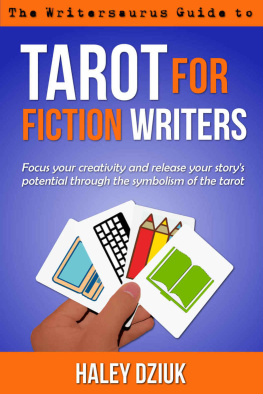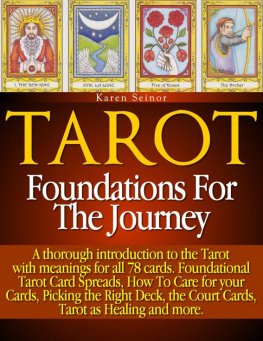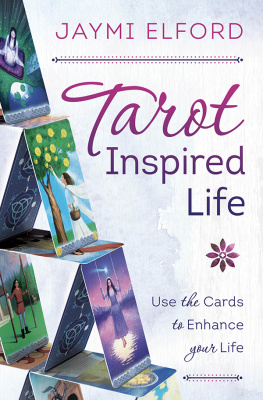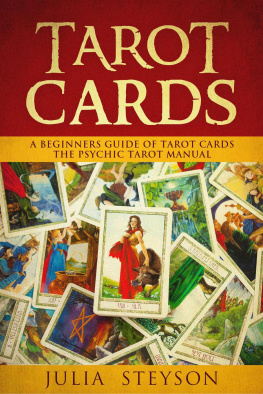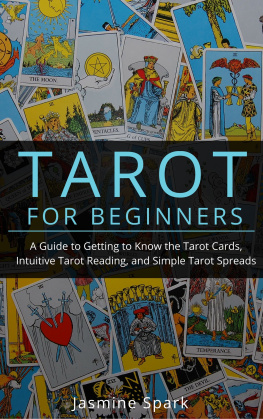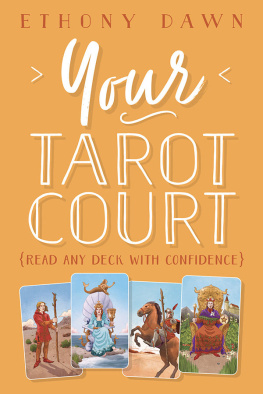Introduction
Have you ever had a really great story idea, but were unable to flesh it out into a full-fledged narrative? If youre a pantser (someone who writes by the seat of their pants), you may have written a dozen pages before getting stuck. If youre a plotter (someone who plots their novel out before writing), you probably havent started writing yet, because you know in your gut an essential piece of the story is missing, the plot element that will take it from ok to amazing.
Then one day the answer hits you. The plot twist that readers will never see coming but makes total sense, the character flaw that will make your protagonist oh-so-relatable, or the complication that keeps your heroine from sharing her feelings with her love interest. Aha! Why didnt I see that sooner? You think as you sprint for your computer or note pad.
Every writer experiences these moments and the elation that accompanies them. Its like having a muse whisper directly in your ear. For most, these eureka moments happen only rarely, with no pattern as to what sets them off. You might not even be actively working on writing. You could be walking your dog or taking a shower. (Personally, Ive had a freakish amount of them while standing in line at amusement parks.)
What if I told you theres a way to trigger these moments to happen? That you no longer have to wait for the whims of the muses to turn in your favor?
Thats what the tarot can do for you.
If someone told me this a year ago, I would have laughed. My grandmother gave me a couple tarot decks when I was young, so Ive always had them around; but apart from a few Halloween parties, they spent the majority of their time in my possession languishing in a closet. Though I was skeptical of their purported uses, I was still drawn to them and could never bring myself to throw them out.
Fast forward to last summer. I was up against a tight deadline but was stuck on a major plot point in my story. No matter what I did, I couldnt seem to connect the pieces of my story to make it go where it needed to. It was during a procrastination session on Pinterest that I came across a storytellers spread.
The idea that you could use tarot as a writing tool seemed like a novelty at best, but what did I have to lose? I pulled out one of my decks and laid out a few cards.
At first, the cards didnt seem to be connected in any way, either to each other or to the story problem I was facing. Still, I stared at the cards, trying to wrest some meaning from them.
And then it hit me: the answer to my problem. It was perfect, and once I saw it, totally obvious, too. It felt like Id been blocked because my subconscious was waiting for me to catch up and see it.
I immediately jumped on my computer and started writing, and I didnt stop until the story was done. At first, I thought this must be a fluke, but in the few months between that first spread and now, Ive had dozens of such moments.
Even the spreads that dont reveal a major development such as the one I just described help me learn about my plot, characters, and world. I havent done a single spread that felt wasted. More than that, laying out a tarot spread puts me into an energized, creative flow state. Im better able to focus on my story and the writing process, whereas otherwise I often feel distracted.
So, Ive become something of a convert. I still consider myself an analytical person, but I cant deny the benefits the tarot has brought into my writing life. I hope to bring these benefits to you, too, which is why I wrote Tarot for Fiction Writers.
Are you ready to unlock your creativity to discover engaging, realistic characters and jaw-dropping storylines? Then read on!
Why the Tarot?
You may be wondering if you have to believe in the tarot as some all-seeing oracle thats capable of predicting the future to reap its benefits as a writing tool.
The short answer is no, you do not.
Most psychics would tell you that the tarot is used to focus your own mental power, rather than being innately powerful itself. When we use them as a writing tool, were focusing our creative energy.
The truth is, the tarot is specifically equipped to help us develop stories. There are character cards, situation cards, and archetype cards, many of which bear striking resemblance to parts of the heros journey and other plot structures. By the end of this book, you will know how to use them to use them to supercharge your creativity and streamline your writing process.
Whats in This Book
This book is divided into three parts. Part I is a quick guide to getting started, including choosing a deck and tarot journal. Even if you already have both of these things, I suggest at least skimming through this section.
Part II is all about the cards. Even if youre familiar with the tarot, theres information there thats specific to using it for story creation. To make this book more accessible, I have created an appendix with suggested meanings for each card. One deviation from most tarot books is that I break the Minor Arcana into two sections character cards and situation cards.
In Part III, I go into the nitty gritty of conducting readings and how best to use the tarot in your writing. This includes several spreadsa spread is the shape you lay out cards in to do a reading. For each spread, I give a brief explanation for the narrative theory behind it, then detail the spread itself. Part III ends with a section on creating your own tailor-made spreads.
At the end of the book you will find a list of resources, a glossary, a list of the card meanings, and links to all the free downloads mentioned throughout the text. Since I know you may not have time to do the exercises and spreads as you read, Ive collected each in an own easy-to-access appendix at the end. That way you dont have to search through the book to find them. (You will do the exercises, though, wont you?)
About the Writersaurus
Before we get started, I want to tell you a little about The Writersaurus and myself, so you have some idea about the person whos telling you all this stuff.
Thewritersaurus.com is a website dedicated to educating writers and creatives of all types about all aspects of writing, editing, publishing, and marketing. When I started the site four years ago, I had no idea what form it would takeI only knew it would center around writing.
The site quickly found its shape as the place where I share everything I learn about writing, editing, and publishing in real-time. In addition to helping other writers, it keeps me accountable, and more importantly, forces me to truly internalize the information. Without it, I would not be the writer that I am today. Thank you for being a part of that journey!
About Me
I am a writer just like you. Ive been writing books, essays, and stories since I was in grade school, but it wasnt until recently that I started to take writing seriously as a possible career path. Thats when I decided to finally write and publish the weird west serial that had been kicking around my brain for nearly half a decade. Three months later, the first episode of Jeremiah Jones Cowboy Sorcerer hit the virtual shelves.
Currently, I write in the fantasy and horror genresand now nonfiction, too, I guess. At the time of this books writing, Ive written and published ten books, and have several more that I will start after this book is done, all of them developed with the techniques described in this book. You can learn more about my fiction at hdukeauthor.com .
Part I: Getting Started
Choosing Your Tarot Deck
First things first: This book wont do you much good without your own set of tarot cards. If you do not already have a deck, there are several routes available to you. The first is to head to the store. The more popular decks, such as the Rider-Waite deck, are available at any Barnes and Noble. Smaller New Age stores will have a more curated selection. You will find the widest range of choices online; there are hundreds of tarot decks out there. At least a few are bound to fit your tastes and budget.

